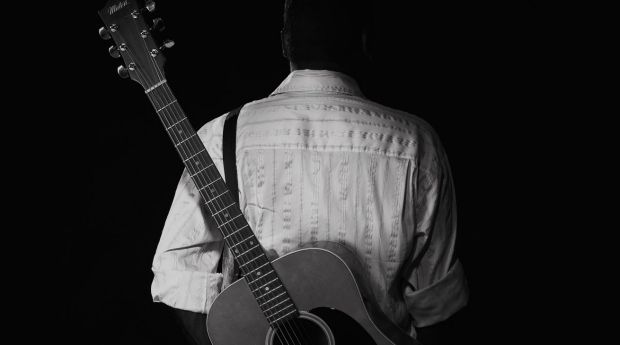Surely no Australian singer’s voice was ever so consistently described as “angelic”, “serene”, “otherworldly” or “ethereal” as that of Dr G Yunupingu. Certainly his ability to make his voice seem to float, disembodied in the musical ether, was a massive part of its ability to cast a spell that mesmerised people the world over. To concentrate on that almost celestial quality, however, is to miss that his singing was also deeply rooted in the earth. It was rooted in terms of place (Elcho Island, sitting just off Arnhem Land) and culture (the Yolngu people), but also in terms of being completely unaffected by any form of artifice. It was utterly truthful. Above all this was the voice of man brave enough to express vulnerability.
 It was this combination of vocal, cultural and emotional assets that allowed his output to transcend all geographical and language boundaries. Speaking little English he sang in his native tongues, and, as with Maria Callas singing in Italian, Amalia Rodriguez in Portuguese or Nusrat Fateh Ali Khan in Urdu, you didn’t need to understand the words to catch the meaning. That was riding on a deeper undercurrent of such emotional honesty as to be unmistakable. Dr Yunupingu’s voice entranced people from Sydney to New York to London, and from his own clan to Queen Elizabeth II, the Pope and President Barack Obama.
It was this combination of vocal, cultural and emotional assets that allowed his output to transcend all geographical and language boundaries. Speaking little English he sang in his native tongues, and, as with Maria Callas singing in Italian, Amalia Rodriguez in Portuguese or Nusrat Fateh Ali Khan in Urdu, you didn’t need to understand the words to catch the meaning. That was riding on a deeper undercurrent of such emotional honesty as to be unmistakable. Dr Yunupingu’s voice entranced people from Sydney to New York to London, and from his own clan to Queen Elizabeth II, the Pope and President Barack Obama.
Dr Yunupingu died in Darwin Hospital last Tuesday after succumbing to long-term liver and kidney issues in the wake of contracting hepatitis B in his childhood. His first names are not being used in this obituary by way of observing Yolngu cultural codes surrounding the dying.
He was born on January 22, 1971 in Galiwin’ku on the remote paradise of Elcho Island, the first of Ganyinurra and Nyambi Yunupingu’s four sons. His parents, also known as Daisy and Terry, were community workers. Blind from birth, he never learned Braille, but soon found his instinctive form of communication in music. First came a toy keyboard and then at the age of six a guitar.
A natural left-hander, Dr Yunupingu taught himself to play a right-hander’s guitar upside down and by ear, which would lend a unique quality to his finger-picking in his professional career. He would go on to add didgeridoo, keyboards and drums to his armoury, although in his later career the focus of his myriad fans was always on his singing.
In 1989, aged 18, he joined what was essentially the family band, Yothu Yindi, in which he was a co-writer of the massive hit Treaty, and contributed to four of the band’s albums through to Garma (2000). In 1999 he co-formed Saltwater Band, which recorded three albums, and, by featuring his vocals, provided the first inkling of what was to come in Dr Yunupingu’s solo career (despite being more overtly rhythmical, often drawing on reggae).
Naturally humble, he was talked into going solo by his friend and collaborator Michael Hohnen. Released in 2008 on the tiny, Darwin-based Skinnyfish label, Gurrumul was one of those rare albums that seemed to stop the world in its tracks. Thanks to Dr Yunupingu’s voice and original songs – that were like massages, and treated with sparse arrangements – it soon attracted massive acclaim, several awards and sold over 500,000 copies world-wide. In the wake of this success he was the Northern Territory’s Australian of the year and a brooding portrait of him by Guy Maestri won the Archibald Prize.
The second album was Rrakala in 2011, followed by a live album, His Life and Music, two years later, recorded at the Sydney Opera House with the Sydney Symphony Orchestra. His third studio release, The Gospel Album, which arrived in 2015, saw him changing direction slightly by concentrating on sacred music presented with his trademark effortlessness and serenity. Collectively these four releases made him the most commercially successful Indigenous musician in Australia’s history. Meanwhile his artistic contribution was recognised with a Doctor of Music Degree from the University of Sydney in 2012.
Inevitably he attracted the attention of other musicians, appearing on stage with people ranging from Sting to Missy Higgins, and attracting acclaim from artists as diverse as Bjork and Elton John.
Equally inevitably he became an inspiration and symbol of hope to his own people, and in 2013 established the G Yunupingu Foundation to increase the opportunities for Indigenous young people in remote communities to realise their full potential and to further those communities’ cultural vibrancy. Unlike some government programs those supported by the Foundation are community-driven, have long-term goals and emphasise the maintenance of Indigenous languages.
Dr Yunupingu was taken to hospital by friends after spending time in an itinerant camp on Darwin’s Casuarina Beach, having reportedly missed several renal dialysis appointments. Upon news of his passing tributes poured in from all quarters, notably from fellow musicians including Midnight Oil’s Peter Garrett and from politicians including the Prime Minister. Senator Nigel Scullion, the Minister for indigenous Affairs, said that Dr Yunupingu was “a hero of Australia and a champion of our entire music scene. He demonstrated how indigenous culture is at the heart of Australian Culture.”
One of the most significant figures in Australian music of the last half-century, Dr Yunupingu was only 46 years old. He is survived by his daughter Jasmine Yunupingu.